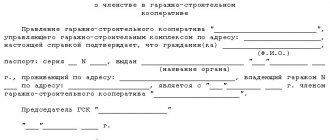The buyer of real estate under an equity participation agreement, in fact, is only given the right to purchase property in the future, since the residential premises themselves are under construction.
And even after paying in full, receiving the keys to the apartment in the finished building and moving into it, he does not yet become the full owner of the purchased property. This will happen only after state registration of ownership rights to the apartment and receipt of the relevant document. This procedure is preceded by the need for the developer to fulfill certain conditions and prepare a package of relevant documents. Registration of property rights is carried out on the basis of the rules and regulations regulated by the following legal acts: · Federal Law of July 13, 2015 No. 218-FZ “On State Registration of Real Estate”; · partially by the Civil and Housing Codes of the Russian Federation; · Federal Law No. 214-FZ of December 30, 2004 “On participation in shared-equity construction of apartment buildings and other real estate.”
Conditions for registering ownership of an apartment under a shared participation agreement
After completion of construction work, the developer company must perform a number of actions to ensure that buyers are able to register their rights to apartments purchased under an equity participation agreement: · drawing up a protocol on the distribution of residential premises and commercial space (if the building has shops, offices or other non-residential premises); · registration and receipt from the BTI of a technical passport for the constructed building, which indicates the number of floors and layout of the house, its total footage and the footage of each individual apartment and other premises; · signing an act of acceptance and transfer of the property and obtaining permission to put it into operation, issued by the relevant authority; · registration of a residential building with Rosreestr; · assigning him a postal address.
What is this?
The term “power of attorney” means an official document by which one person authorizes another to represent his interests, to act in his interests in certain legal relations.
Its parties are the “principal” - the person represented and the attorney, that is, his representative.
In accordance with the provisions of Article 185 of the Civil Code, a power of attorney is a written transfer by a certain person of his rights and powers to another person so that he represents his interests before third parties.
Thus, the principal transfers the rights to his representative, who performs legal actions in his place.
The representative is deprived of the opportunity:
| Conclusions | signing an additional or other document that is attached to the equity participation agreement |
| Make trades | facilitating changes in the terms of the contract |
| Sign documents | executed during any type of transactions with the building being erected |
| Change faces | which are specified in the remote control agreement |
| Transfer ownership | to a person not specified in the DDU |
Legislative act
Questions regarding shared-equity construction are clarified in the Federal Law “On participation in shared-equity construction of apartment buildings and other real estate and on amendments to certain legislative acts of the Russian Federation.”
Its provisions make it possible to regulate the relations that arise between the developer and an individual participant in shared construction.
It was issued by the legislator on December 30, 2004 under the number 214-FZ.
An agreement on the construction of a residential building using the funds of citizens is subject to conclusion when the developer:
| Got permission | from the Department of Architecture and Construction to the construction of a residential building |
| Published in periodicals | on the official website information regarding the construction of a residential building |
| Registered ownership | allowing the use of land for the construction of a building |
The Civil Code of the Russian Federation defines the concept of “power of attorney”. At its core, this is a transaction carried out unilaterally.
It indicates the powers of the representative. Article 185 explains the procedure for transferring rights by the principal and the responsibility of the authorized person.
Video: ownership rights under a preliminary share participation agreement
It is subject to rules that are directly related to unilateral transactions.
In addition to them, special rules have been introduced that apply in exceptional cases.
For example, the content of the powers of a representative in a certain agreement, including an agreement between the representative and the represented, the represented and a third party.
The case cannot be excluded when powers are conditioned by a decision of the meeting, unless other conditions are established by regulatory legal acts and do not contradict the essence of the relationship.
Granting rights to the developer
The acquisition of residential space in a building under construction is accompanied by double registration of the residential building with a government agency.
In the first, it is carried out during the period of concluding the remote control agreement, in the second, after the transfer of the residential premises into operation.
As a rule, in the first case, the interests of the shareholder during registration can be ensured by the developer.
The norm is provided for in the provisions of Federal Law 214-FZ.
To minimize the amount of documentation submitted for registration, issue a power of attorney to the developer, who will register the concluded management agreement with the relevant structures.
The norm is provided for in Act No. 214-FZ, namely in Article 17.
Features of registering ownership of an apartment in a new building
In relations with the developer at the stage of shareholders taking ownership rights, two scenarios are possible: · the construction company assists buyers in collecting the necessary documents to register their ownership rights to housing purchased from it under equity participation agreements; · it interferes with them or is inactive in the decision this issue. In the first case, registration of property is carried out in accordance with the general procedure, in the second - through the court. After putting a residential building into operation, the developer transfers the apartments to shareholders. This happens in the presence of both parties to the contract by inspecting the residential premises, checking the operation of all communications, signing the acceptance certificate and handing over the keys to the apartment to the owner, who must subsequently receive a cadastral passport for it with a plan diagram. Since January 2013, the cadastral registration of an apartment building by the developer is carried out simultaneously with each room in it. In this regard, shareholders themselves no longer need to order a cadastral passport when registering property rights. But, often, the developer, for various reasons or for no reason, delays the registration of a cadastral passport for the finished object. In this case, apartment owners who are interested in registering their property rights as quickly as possible are forced to first order technical plans for residential premises from the BTI, and then, together with applications, transfer deeds and share participation agreements, contact Rosreestr to register apartments on registration and issuance of cadastral passports. If the housing was purchased on credit, then it is necessary to prepare a mortgage document or a loan agreement, and if it was purchased for a minor, then obtain permission from the guardianship and trusteeship authority.
Documents for registering ownership of an apartment according to DDU
According to paragraph 11 of Art. 48 Federal Law dated July 13, 2015 No. 218-FZ, to register ownership of an apartment acquired under a shared participation agreement, the following documents are required: · passport of a citizen participating in shared construction; · agreement of shared participation in the construction of a residential building; · an apartment acceptance certificate or other document confirming its transfer to the participant; · permission to put into operation the apartment building in which the apartment is located; · receipt confirming payment of the state duty. In private cases, the following may be required: · a birth certificate if housing is registered for a minor child; · a mortgage on an apartment or a loan agreement (if housing is purchased on credit); · power of attorney to represent the interests of the shareholder, certified by a notary; · notarized consent of the spouse to conclude a share participation agreement by the other.
Video about the dangers of equity participation
An equity participation agreement (hereinafter referred to as the EPP) is a written agreement between the shareholder and the developer, which describes who invests money in the construction of residential buildings and in what shares. As a result of the transaction, the shareholder receives an apartment in the building in accordance with the delivery deadlines. To save yourself from unexpected costs and unnecessary trips to a lawyer or notary, you should fully analyze the power of attorney for registration of an equity participation agreement for the presence of pitfalls.
Where are these pitfalls?
A power of attorney for registration of a DDU is meant as the authorization of one person (Builder/Developer) to represent and/or act in accordance with the interests of another person (Shareholder/Beneficiary), for example, to register with Rosreestr in certain legal relations.
The source of the problems is a poorly checked power of attorney for registering a DDU for the presence of clauses that can completely turn against the signing party.
Therefore, the following precautions should be observed:
- read the power of attorney carefully;
- correctly indicate information about the shareholder and the developer;
- double-check information about the representative;
- indicate the validity period of the power of attorney.
If the agreement has already been signed, and the shareholder came to his senses with a delay, then he has the right to go to court to have the agreement or its individual clauses declared invalid, but this can be avoided by familiarizing yourself in advance with the Federal Law of December 30, 2004 N 214-FZ and the terms/clauses of the agreement .
Law 214-FZ: briefly about the main thing
Before writing a power of attorney for the Developer or concluding a DDU, you should consider important points about shared construction:
- A prerequisite for any DDU is a clear fixation of the completion date of construction, without subsequent changes to the date.
- Pay attention to the date when the apartment will be officially registered (the apartment will become private property).
- It is necessary to indicate in the contract the exact area of the apartment you are purchasing.
- It is necessary to indicate in the DDU and the power of attorney the exact address of the court in which there may be possible proceedings between the participants in these legal relations.
The above auxiliary points will help to avoid problems with calculating the violation of the term of the rental agreement and will significantly save money if the developer provides an apartment with a smaller square footage and you have to pay extra for additional meters. If the case goes to court, then during legal proceedings you will have to travel to court hearings taking place in another district or city.
We recommend that you read:
Sometimes, in a power of attorney or DDU, the beneficiary’s responsibilities include the costs of liability insurance, which is also an inappropriate use of funds. The choice of insurance method is up to the developer himself. Escrow accounts can be a solution in such situations. When opening and paying for your share through a bank account, the rules on compulsory civil liability insurance do not apply to the developer, and they cannot be assigned to the beneficiary.
Necessary package of documentation for issuing a power of attorney
- Statement from the developer.
- Statement from the beneficiary.
- Identification documents of applicants.
- Agreement of deposit, rights of claim.
- Documentation related to the real estate.
- Notarization of the consent of each spouse to enter into a transaction.
- Documentation certifying the powers of the persons - the developer and the beneficiary.
- Constituent documents of a legal organization - developer.
- Guarantee agreement.
- Notarized power of attorney (if available).
- DDU (developer and beneficiary) agreement.
- Papers confirming payment of the state duty.
The legislator approved this package of documents, but left it open. Sometimes it is necessary to attach certified copies of documents that verify the identities of the parties.
When preparing DDU packages, you must pay a state fee, which will be 200 rubles. To issue a subsequent power of attorney, a notarization will be required, which depends on the individual fees of the notaries themselves.
The approximate amount for issuing a power of attorney for individuals is 1,400 rubles, for legal entities 2,000 rubles.
Important nuances of a power of attorney/DDU
Since the conclusion of an agreement for shared participation in construction or a power of attorney occurs in writing and is subject to mandatory registration in the state register, then after signing the document, this form of conclusion assumes the absence of subsequent changes to the agreement in accordance with clause 5 of Art. 4 214-FZ. It is worth mentioning the fact that the developer provides a sample power of attorney for registration, which should be completely double-checked. In fact, there is no single model and the DDU can be filled with all sorts of clauses that support your rights to property.
The documents must contain the following conditions:
- A specific definition of the DDU facility, which will subsequently be built and put into operation.
- Deadlines for handing over the property by the developer to the shareholder.
- The cost measure of the contract, the procedure for its payment.
- Warranty periods for the DDU facility.
These conditions are necessarily prescribed in the power of attorney and in the contract.
Adequate additional conditions under the DDU power of attorney include:
- Prohibition on making changes to the contract and the existence of rights to terminate the contract unilaterally.
- Availability of conditions for registration of assignment between shareholders (transactions with it with the right of assignment).
- Submit and receive papers with the right to pay the necessary expenses, sign and perform actions related to the registration of a child-care facility.
- Registration of a DDU involves negotiations, submission of applications on behalf of the shareholder, submission and receipt of the necessary certificates and documents.
The specified list of conditions is considered optional for inclusion in the power of attorney, but their presence is desirable.
The procedure for registering ownership of an apartment under a shared participation agreement
Ownership of housing acquired under a shared participation agreement can be registered in two ways: 1. entrust registration to the development company; 2. handle the registration personally. In the first case, this service is paid; you will also need to pay at the notary’s office for the execution of a power of attorney in the name of the construction company’s lawyer. It is quite possible that the registration procedure will take much longer than if you contact the registration service yourself. If the shareholder decides to engage in state registration of property rights on his own, then for this he needs to contact directly the Rosreestr or the MFC (multifunctional center). The registration procedures are identical. Documents are accepted in the presence of all apartment owners and a representative of the construction company - the developer. First, the registrar fills out an application for registration, which includes data identifying all owners of the property, the address of its location and technical characteristics, as well as a list of documents submitted for registration of property rights. After which the application is signed by the applicant or applicants, if there are several of them. A separate application is also filled out by the seller of the property, in this case, the developer’s representative. When accepting documents for registration of property rights, the registrar issues a receipt of their acceptance, which indicates the date of registration of the corresponding right. At the appointed time or at any other time after this date, the homeowners are returned their copy of the share participation agreement with the registration inscription and the apartment acceptance certificate. From this moment on, the former shareholders become the full owners of the acquired property with the right to dispose of it and perform any non-illegal actions.
What kind of power of attorney should there be for registering an equity participation agreement and is there a single sample?
When signing an agreement with the specified clauses, the developer has the full right, after paying the share in the apartment building on behalf of the signatory, to resell the previously paid apartment. His rights include increasing the cost of the apartment and expanding the list of services (additional), which will be paid separately by the shareholder.
When preparing DDU packages, you must pay a state fee, which will be 200 rubles. To issue a subsequent power of attorney, a notarization will be required, which depends on the individual fees of the notaries themselves.
10 Jun 2020 lawurist7 635
Share this post
Related Posts
Deadline for registering ownership of an apartment under a shared participation agreement
The legislation establishes a 7-day period (clause 1 of Article 16 of Federal Law No. 218), during which employees of the registration service are required to register ownership of any real estate, including an apartment acquired under an equity participation agreement. Within the specified period, the following actions are carried out in general order: · acceptance of an application for state registration of rights; · legal examination of submitted documents, · verification of their authenticity, the legality of this transaction, · identification or exclusion of circumstances that impede the registration of ownership rights to a given property; · entering the necessary information into the Unified State Register of Real Estate (USRN); · issuance of documents with a registration inscription on a contract or other title deed (in the future, if necessary, the owner can receive an extract from the Unified State Register of Real Estate for his property, which is issued when applying to Rosreestr or the MFC from the beginning of 2020). It is important to know that the period is calculated in working days and is counted from the day the documents are submitted for registration. Often this deadline is not met, and this may be due to the verification of the documents provided, or depend on the number of owners of the purchased property, the availability of a mortgage loan and other factors. In this case, in order to comply with the legality and validity of such violations of the deadline in paragraph 2 of Art. 26 Federal Law dated July 13, 2015 No. 218-FZ provides for a 3-month period for suspending the registration of rights to eliminate the reasons.
Power of attorney for registration of DDU
“to represent my interests in the Office of the Federal Service for State Registration, Cadastre and Cartography in Moscow, its departments, subdivisions and territorial administrations, including the Branch of the Federal State Budgetary Institution “Federal Cadastral Chamber of Rosreestr”, during the state registration of the agreement for participation in shared construction. with the Joint Stock Company "Investment", additional and other agreements thereto, agreements for the assignment of rights of claim and other transactions, including when registering ownership of real estate on the basis of the above agreement for participation in shared construction, in relation to residential premises (rights to residential premises) conditional design . section, floor in a residential building under construction, located on a land plot owned by the Investment Joint Stock Company (cadastral number: address reference: Moscow, Mitinskaya St.) (or a land plot formed from the above land plot, including as a result of division, merger, redistribution or allotment, including as a result of merger, redistribution of the above-mentioned land plot with land plots with cadastral numbers. represent my interests and make the necessary decisions in the event of the emergence, change and termination of the object (subject) of the pledge arising as a result of the state registration of the above agreement for participation in shared construction, and entering the relevant information into the unified state register of rights to real estate and transactions with it in the event of the formation (division, allocation, merger, redistribution, etc.) of new land plots from the land plots on which construction is carried out residential building in which the above-mentioned residential premises are located, represent my interests as a mortgagee during the state registration of the title of JSC IC Greenex to newly formed land plots, state registration of the occurrence, change or termination of the pledge of ownership of the land plots on which the residential building under construction is located the house in which the above-mentioned residential premises is located is owned by a participant in shared construction by force of law, for which I authorize the submission of applications and documents for registration, including the submission and signing of applications for the repayment of registration records on the mortgage of real estate objects arising on the basis of the above-mentioned participation agreement shared construction, represent interests in case of suspension and refusal of registration actions, receive documents; perform all other actions related to this order, pay state fees, collect the necessary documents, submit applications for suspension, renewal of registration actions, correction of a technical error, making changes to the Unified State Register records, submit additional documents, sign for me and receive originals of registered contracts and other documents to be issued. The powers under this power of attorney may be transferred to other persons. The power of attorney was issued for a period of five years.
This is interesting: How to Calculate the Subsidy Amount for a Young Family
Good evening, Mikhail. And it’s good that there are four of us - if someone gets sick and can’t come for documents, one of the four will cover. Is it better to entrust the registration to the developer or do they charge a lot for registration?
State duty when registering ownership of an apartment under a shared participation agreement
The basic rule that every applicant needs to know when applying to the registration service is that the state fee is paid before submitting an application for registration of ownership of an apartment, otherwise the registrar will not accept the application with the remaining documents. Only if the application is submitted electronically, the fee is paid after its submission, but before the documents are accepted for consideration. The state duty is charged in accordance with the Tax Code of the Russian Federation. Its size is determined by Art. 333.33 of the Tax Code of the Russian Federation and for registering ownership of an apartment acquired by an individual under an agreement for participation in shared construction of a residential building is 2,000 rubles. If there are several future owners, then the fee is divided between them in proportion to their share in the ownership of the apartment.
Power of attorney for registration of DDU
There is such a power of attorney (sample) for registering a residential building, issued by the developer: I trust (list of individuals) to be my representatives in the Department of the Federal State Service. registration, cadastre and cartography, PIB and other competent institutions and organizations on issues related to the registration of an agreement for shared participation in the construction of an apartment building at the address (.), concluded with (Name of developer), additional and other agreements thereto, as well as encumbrance of rights under such an agreement, ownership of an apartment, for which I grant the right to submit applications for state. registration of an agreement, additional and other agreements to it, ownership of an apartment, encumbrance of rights to an apartment (mortgage), termination of encumbrance of rights (mortgage), submit documents for registration, sign for me, submit any applications, including about marital status, on amendments to the Unified State Register, receive and provide the necessary documents, pay state duties and fees, with the right to receive registered documents, certificates of state registration of rights and carry out all actions and formalities related to this order. Power of attorney for 3 years without the right of substitution. I am interested in the following points: - Is it possible, using such a power of attorney, to register ownership of another person without my knowledge? - Is it possible to conclude and register an additional agreement? agreements to the DDU without my knowledge and participation? (The point about signing for me is confusing - here we mean signing in the additional agreements themselves or only when submitting for registration documents/agreements already signed by me personally, etc.). Will they be able to submit a DDU for registration if I cross out this right? Thank you.
Hello Anna! In accordance with the Federal Law of January 17, 1992 2202-1 "On the Prosecutor's Office of the Russian Federation": Quote: Article 10. Consideration and resolution of applications, complaints and other appeals in the prosecutor's office 1. Applications, complaints are resolved in the prosecutor's office in accordance with their powers and other requests containing information about violations of laws. The decision made by the prosecutor does not prevent a person from going to court to protect his rights. A decision on an appeal against a sentence, decision, determination and order of the court can only be appealed to a higher prosecutor. 2. Applications, complaints and other appeals received by the prosecutor's office are considered in the manner and within the time limits established by federal legislation. 3. The response to an application, complaint or other appeal must be motivated. If the application or complaint is refused, the applicant must be explained the procedure for appealing the decision, as well as the right to go to court, if provided by law. 4. The prosecutor, in accordance with the procedure established by law, takes measures to bring to justice persons who have committed offenses. 5. It is prohibited to forward a complaint to the body or official whose decisions or actions are being appealed. Article 14.8 of the Code of the Russian Federation on Administrative Offences. Violation of other consumer rights 1. Violation of the consumer’s right to receive necessary and reliable information about the product (work, service) being sold, about the manufacturer, about the seller, about the performer and about the mode of their work - entails a warning or the imposition of an administrative fine on officials in the amount of five hundred to one thousand rubles, for legal entities - from five thousand to ten thousand rubles. 2. The inclusion in a contract of conditions that infringe upon the rights of the consumer established by law shall entail the imposition of an administrative fine on officials in the amount of one thousand to two thousand rubles, on legal entities in the amount of ten thousand to twenty thousand rubles. 3. Failure to provide the consumer with benefits and advantages established by law - entails the imposition of an administrative fine on officials in the amount of five hundred to one thousand rubles, on legal entities - from five thousand to ten thousand rubles. Article 333 of the Civil Code of the Russian Federation. Reduction of the penalty If the penalty payable is clearly disproportionate to the consequences of the violation of the obligation, the court has the right to reduce the penalty. The rules of this article do not affect the debtor’s right to reduce the amount of his liability on the basis of Article 404 of this Code and the creditor’s right to compensation for losses in cases provided for in Article 394 of this Code.
This is interesting: What documents are needed for rent benefits for labor veterans
Design algorithm
If the management agreement is not registered in the prescribed manner, the developer is deprived of the right to involve material resources in construction.
In addition, he has problems with reporting on production activities.
For the Federal Law on shared participation in construction, read the article: Law on shared participation in construction. Read about the deadlines for registering an assignment under a shared participation agreement here.
The principal has the right to file a claim regarding a violation of his rights if, having received a power of attorney, the developer has not completed registration in the prescribed manner.
Registration in Rosreestr
The legislator has approved a certain procedure for registering with a government agency.
In accordance with its rules, registration of a share participation agreement for the construction of a building is carried out in the Rosreestr body, to which the construction area is assigned.
When carrying out this procedure, all instructions must be followed:
| Resolution “On the Federal Service for State Registration, Cadastre and Cartography” | published on June 1, 2009, number 457 |
| Order of Rosreestr “On approval of the Regulations of the Federal Service for State Registration, Cadastre and Cartography” | published on February 28, 2011 under number P/52 |
Before carrying out the registration procedure, you should conclude a property management agreement with a person who is interested in shared construction.
It is regarded as a registered agreement if a corresponding entry is made in the unified state register of rights.
It is a basic government resource containing information:
- About all rights holders of real estate.
- About existing real estate objects.
- On ownership rights to real estate that have been suspended.
Package of securities
The rules for the use, management and disposal of securities provide for transactions through a power of attorney. Its form does not differ in any way.
In accordance with the principle laid down in it, the representative of the owner of the securities can perform any actions with the securities.
A power of attorney of this kind belongs to the category of registered official documents, in which the person who received and issued it must be indicated.
According to generally accepted rules, it can be issued to one person or several persons who can act together or separately.
Each of them has the right to make a certain transaction with securities. In this case, it can be handed to one person or several at the same time.
Sample contract
Persons directly involved in shared construction enter into a specific agreement.
Its main goal is to involve the material resources of citizens for the construction of a residential building.
It is subject to conclusion in writing based on the application of citizens.
The content of the DDU must indicate:
| Characteristics of a residential building under construction | which is erected by the developer in accordance with the terms of the agreement concluded with the shareholder |
| Date of completion of the erected building | date of its transfer to the shareholder |
| Negotiated price | residential premises |
| Procedure for making payments | specific terms for making payments determined by the contract |
| Developer guarantees | for the period of operation of a residential building |
| Liabilities | ensuring proper execution of the contract by the developer, methods of compensation for missed deadlines |
In recent years, with the development of new technologies, electronic contracts have begun to be concluded.
Its content is drawn up in any form, since it is not unified by the legislator.
This circumstance allows each developer to develop his own form.
Price
When citizens apply to state bodies, municipalities and other institutions, in accordance with the instructions of Article 333.17 of the Tax Code, a state fee is withdrawn.
It is subject to confiscation for committing legally significant actions.
An exception to the rules are actions carried out by consular offices of the Russian Federation.
When registering a DDU, the developer pays a state fee of 350 rubles.
The fact of payment of the state duty is certified by a payment receipt, which is recorded by a bank or a regional body of the Federal Treasury.
The possibility of payment through the official website of the relevant authority located on the Internet cannot be ruled out.
The norm is provided for in the provisions of the Federal Law “On the organization of the provision of state and municipal services.”
It was issued by the legislator on July 27, 2010 under number 210-FZ.
Preparation of contract
The rules for compiling the text of the DDU are set out in Art. 4 Federal Law of the Russian Federation No. 214. According to the document, the agreement is concluded only in writing. It is mandatory for him to make a registration entry in Rosreestr. The text of the DDU itself contains the following information:
- determination of the residential property in respect of which the contract is being drawn up. The item must be spelled out especially carefully, indicating the number of rooms, their footage, construction materials, information about the entire apartment building, etc. Plus, a diagram-drawing is attached to it, allowing you to determine the relationship of the apartment to other rooms in the house;
- the period during which the developer is obliged to put the housing into operation;
- the cost of the apartment, the amount of individual contributions and the procedure for making them by the shareholder;
- warranty conditions on the part of the developer;
- the procedure for transferring a share under the DDU in the event of the death of the shareholder;
- the developer's liability if the object is damaged or destroyed for reasons beyond his control.
The text of the agreement is extensive. It is advisable to involve a qualified lawyer to proofread it before signing. When drawing up an agreement, a married couple should pay attention to the clauses that stipulate the option of dividing the share in the event of family breakdown, if one is present in the text.
You can start living in an apartment under a shared participation agreement only after a long period of time after its conclusion. This fact is also reflected in the rules for dividing real estate acquired under the DDU. Until it is officially put into operation, the division of rights is impossible.
The difference between DDU and purchase and sale
The procedure for purchasing housing on the terms of shared construction is gaining increasing popularity in Russia. When people talk about this form, they are first of all interested in how it differs from a standard real estate purchase and sale agreement.
By drawing up a purchase and sale agreement, the payer buys ready-made housing. With DDU, they acquire a share in real estate, which in reality does not yet exist, it is only at the construction stage. The equity participation agreement in 2020 is regulated by Federal Law No. 214 (dated December 30, 2004).
In the legal sphere, a transaction carried out through the conclusion of a DDU does not relate to real estate transactions. Such an agreement regulates the relations of the parties regarding the transfer of property that does not exist in reality at the time of its signing.
If, when concluding a purchase and sale agreement, the buyer receives ownership of the apartment after a specified, not very long period of time, then this is not the case with the DDU. By making a full cash payment, you can obtain ownership of the home in a few years. Those. to some extent, the equity participation agreement in 2020 can be regarded as a form of investment.
Pros and cons of buying real estate under DDU
The main positive aspects for shareholders associated with the conclusion of a DDU can be determined by referring to the Federal Law of the Russian Federation No. 214:
- Firstly, you don’t have to worry that the apartment will be sold several times to different owners, as happens when drawing up a sales contract. The reason for this reliability is the mandatory registration of each preschool educational institution in Rosreestr. An organization simply will not register a contract for the same object twice.
- Given the degree of protection, banks are more willing to issue loans against DDU.
- Registration of ownership of an apartment acquired with shared participation is carried out according to a simplified scheme. As soon as the house is completed and put into operation, the shareholder registers ownership by simply contacting Rosreestr. There is no need to coordinate this procedure with the developer.
- The commissioning of a property that has technical problems is excluded, because the developer is obliged to develop a construction plan as clearly as possible and adhere to it. Otherwise, the design and delivery documentation will not be endorsed.
- If the shareholder decides to terminate the participation agreement, the developer is obliged to return all amounts of money paid without any deductions.
- If the developer does not fully fulfill his obligations, the person who entered into the DDU receives the right to demand payment of the penalty and fulfillment of the contract in full.
- For shareholders who miss payments for a long period of time, minimal sanctions are applied, associated with a small penalty. If the developer delays the commissioning of the facility, then he faces a serious fine in favor of the participants of the DDU. The permissible delay is a maximum of 60 days.
- After concluding the contract, the developer no longer has the right to change the dimensions and layout of the future housing. If, for technical reasons, the square footage of the apartment has nevertheless decreased, then part of the money must be returned to the purchaser.
- Once the contract is signed, the cost of housing cannot be increased.
Shareholders will receive a penalty from the developer for the following violations:
- the property was not put into operation within the period specified in the contract;
- construction was stopped or suspended for biased reasons;
- the object was delivered with technical violations;
- change in the area of living space specified in the DDU;
- changes in the characteristics of premises inside a facility under construction.
And the main positive point is the fact that the cost of an apartment purchased under the DDU is significantly lower than when purchased under a sales contract.
While there are many positive aspects, it is necessary to mention two significant disadvantages of shared-equity construction:
- Long waiting period for housing to be put into operation. Everything may take several years, so it is advisable for equity holders to take care of finding a place to live for the entire period while the house is being built.
- There is always a chance of encountering an unscrupulous developer or facing an economic crisis. As a result, the construction is frozen, and the contributions made are lost. Returning them through the court is a very troublesome matter.
The choice of developers should be approached very seriously, considering all projects previously completed by the company.








